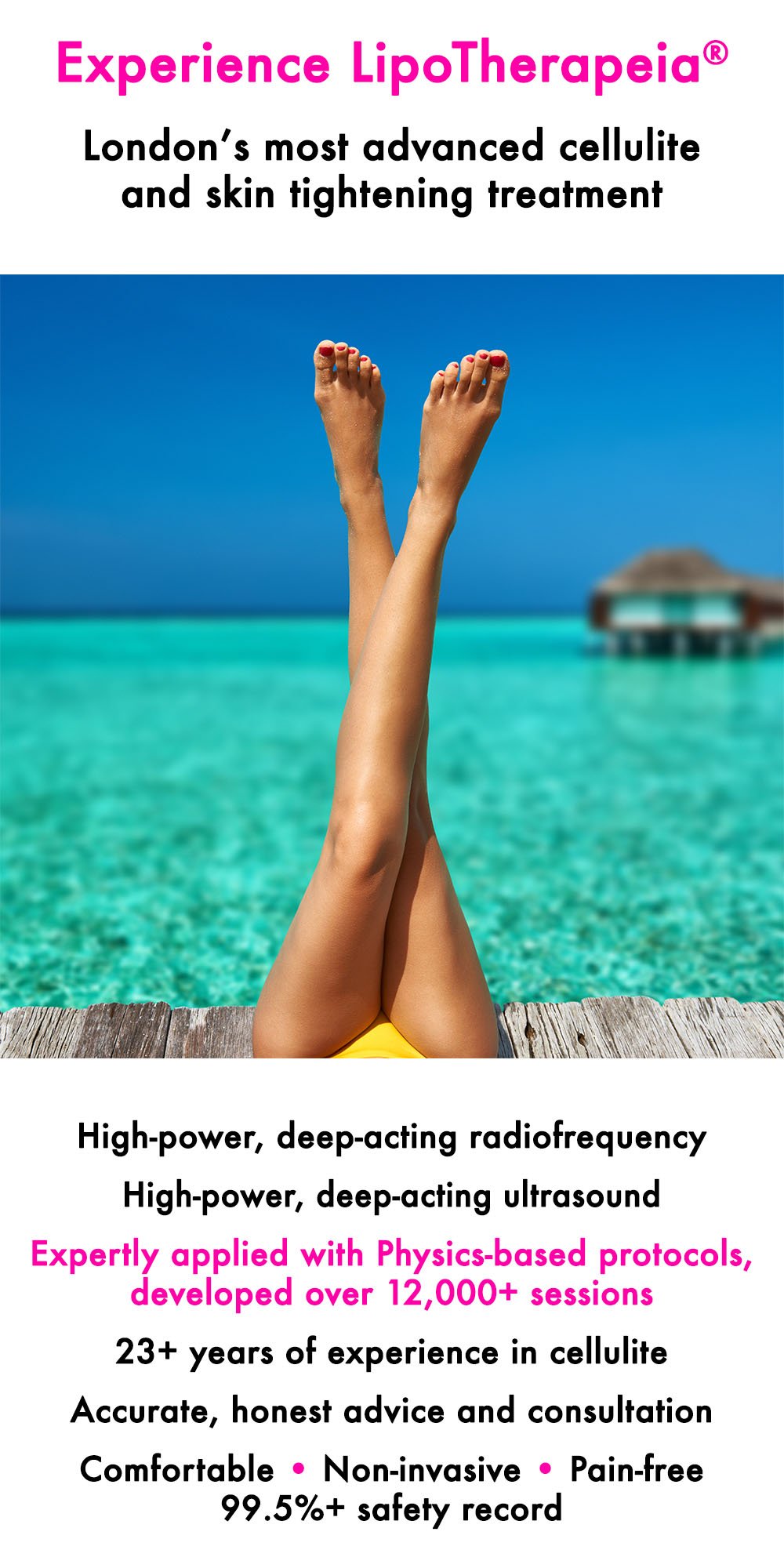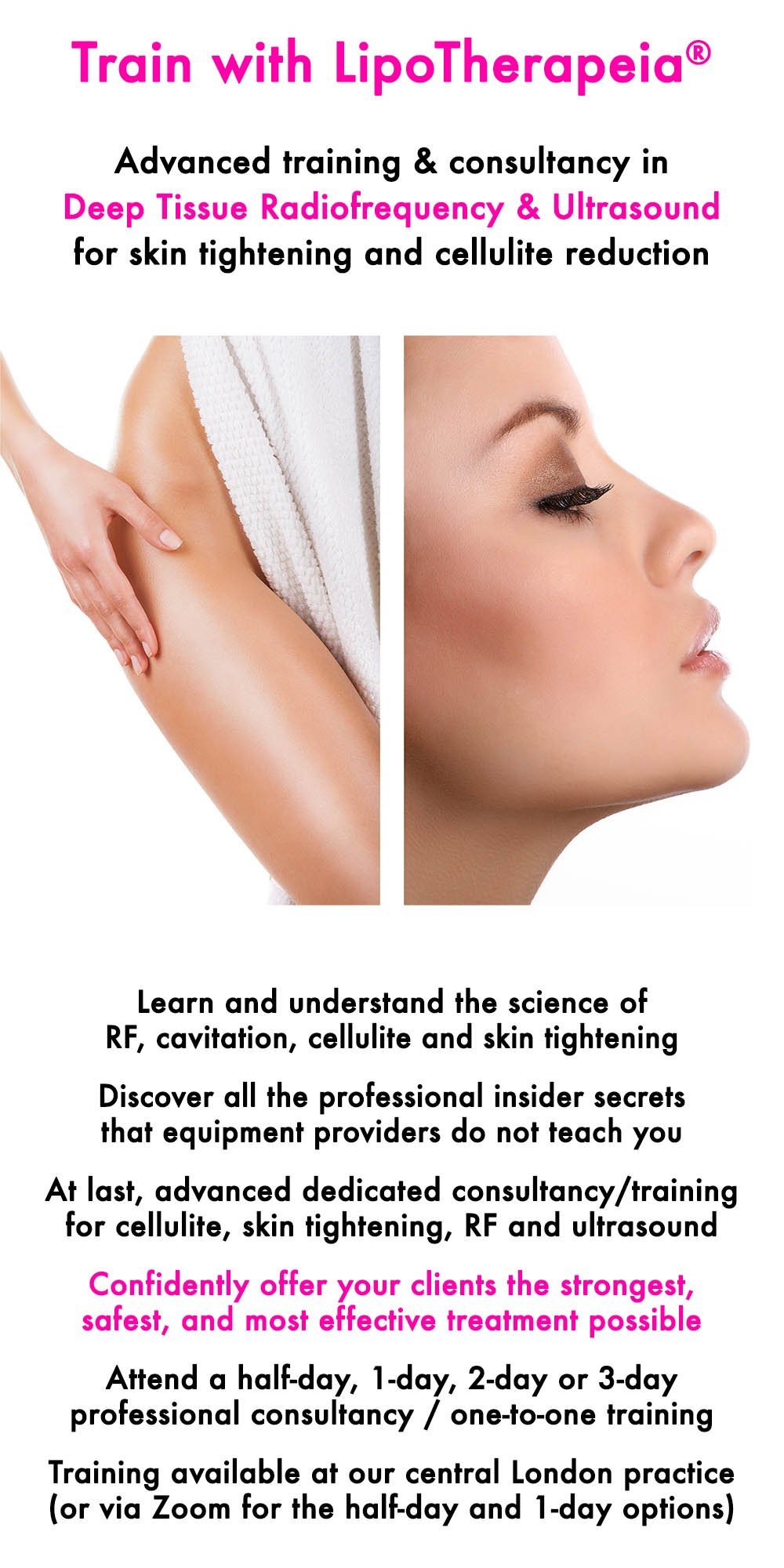“This is not to say that matcha is not a great tea to have - it’s just unnecessarily caffeinated, expensive and even cumbersome to drink, as it needs a tea whisk or a shaker.”
Matcha, plain green tea, decaf sencha tea: what is best for cellulite?
Matcha is a green tea variant specially developed to contain high amounts of caffeine - and a bright green colour.
Matcha is consumed as a whole leaf powder diluted in hot water, as opposed to normal green tea, which is leaf extracted in hot water via a filter or a teabag.
Contrary to popular belief, matcha tea is NOT healthier in any form than normal green tea. It just contains a higher amount of caffeine with some (overrated) theanine and it is also far more expensive.
Matcha: more caffeine, same antioxidants
Matcha contains higher levels of caffeine than normal green tea: an average of 100mg per cup, which is the same a relatively strong espresso. This is double or triple the amount per cup of normal green tea, which typically contains 30-60mg of caffeine.
With normal consumption (up to 400mg of caffeine per day) this does not make any difference one way or the other for cellulite.
On the other hand, normal green tea and matcha both contain a similar amount of polyphenols (what people call ‘antioxidants’), including an average of 7% EGCG, the most important polyphenol in green tea / matcha.
Matcha tea, caffeine and theanine
Matcha also contains the - supposedly calming - aminoacid theanine, which in theory would balance the effect of excess caffeine and offer focus.
However, this effect is overhyped and in reality it does not work like that and matcha tea still causes jitters to people sensitive to caffeine.
In contrast, 2-3 cups of normal green tea contains the same amount of caffeine as 1 cup of matcha green tea and it is drunk over a longer period of time, thereby causing no jitters.
Plus 2-3 cups of normal green tea contain 2-3 times the EGCG and other polyphenols, i.e. 3x times the benefit for the same amount of caffeine.
The extra EGCG/polyphenols offer a more substantial overall benefit than matcha tea’s theanine, both in terms of overall health and for cellulite.
EGCG and polyphenols against skin ageing and cellulite
EGCG, and polyphenols in general, are powerful allies in the fight against cellulite, as they act in multiple ways to prevent / reduce cellulite: they protect collagen and elastin, stimulate lipolysis, fight fibrosis and boost circulation.
All in all, both green tea and matcha are equally helpful against cellulite and skin looseness, in terms of polyphenols.
Matcha, green tea and the polyphenol/caffeine ratio
However, plain green tea is generally a better choice as it contains the same amount of polyphenols as matcha but without the burden of excessive caffeine stimulation, which can be disturbing for quite a lot of people.
This means, as mentioned above, that you can normally consume much more plain green tea, and therefore benefit from much more polyphenols, than you can with highly caffeinated matcha tea.
Plus plain green tea costs a fraction of the cost of matcha tea.
This is not to say that matcha is not a great tea to have - it’s just unnecessarily caffeinated, expensive and even cumbersome to drink, as it needs a tea whisk or a shaker.
Matcha in protein shakes
Matcha powder can easily incorporated into protein shakes, while plain green tea needs brewing for a few minutes and then waiting to cool down before putting it into a shake.
Given that most women do not consume enough protein (which in turn leads to skin looseness), this can be a game changer. Anything that gives tasty nutrients to a protein shake is welcome.
Decaf sencha tea in a protein shake: lots of EGCG, zero caffeine
However, green tea is still too caffeinated for sensitive people - or for those who wish to have a high amount of EGCG in their protein shake but without the burden of excess caffeine.
Now, there is no point having decaf matcha tea, as matcha is specifically made to have high caffeine content - it will defeat the whole purpose to decaffeinate it.
So for those smart people, who want plenty of EGCG and zero caffeine, there is the solution of decaf sencha tea. Sencha tea is the same grade as matcha tea, high in polyphenols such as EGCG and is available as a decaffeinated powder too.
(Please note that caffeinated tea and coffee are made with a natural process these days (water / carbon dioxide process), and they are absolutely healthy.)
Green tea skincare creams / anti-cellulite creams
Regarding topical application, isolated EGCG (>95% purity) is amazing as an active in anti-ageing and anti-cellulite creams, due to its lipolytic, anti-fibrotic, antioxidant, collagen-boosting and circulation enhancing action.
Not many such creams exist on the market, but a handful of them do contain high amounts of high purity EGCG, alone or or in combination with other actives, such as curcumin, chlorogenic acid etc.
(Of course, the typical diluted skincare serums and creams containing 0.1% EGCG would not be very helpful.)




![How to get rid of cellulite | 111 tips from the experts [2024 update]](https://images.squarespace-cdn.com/content/v1/5294cad9e4b009e918124a61/1582205124442-U31A5ECGNCG62VFPPJWJ/How+to+get+rid+of+cellulite+in+2020.jpg)


